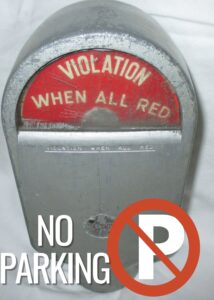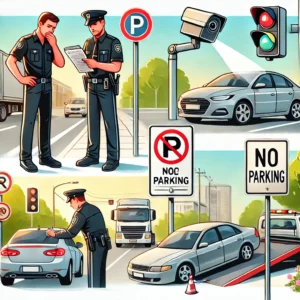Documents to Keep in Your Car: Vehicle Registration
Vehicle registration is a critical document that verifies your vehicle is officially registered with your state’s motor vehicle department, confirming you have fulfilled all necessary taxes and fees for your tags/license plates. It is mandatory for your vehicle to be registered before it can legally be driven on public roads.
To register your vehicle, the Department of Motor Vehicles (DMV) requires you to provide insurance proof, a valid driver’s license, and, depending on your state, car tax information. Since documentation requirements can vary, it is advisable to consult your local DMV, division of motor vehicles, or the specific state department responsible for vehicle registration for accurate guidance.
In the event you are stopped by law enforcement, you are obligated to present proof of registration, insurance, and your driver’s license. Therefore, it’s imperative to ensure your vehicle registration is always present in your car.
Note: Liability insurance is mandatory in 49 states, with New Hampshire being the exception.
It’s prudent to regularly verify that your vehicle registration document is stored in your car, especially the registration card, particularly if you suspect your vehicle may have been compromised or accessed without authorization.
| Document | Requirement | Notes |
| Proof of Insurance | Required in 49 states (except New Hampshire) | Ensures compliance with state laws |
| Driver’s License | Mandatory | Validates the driver’s legal ability to operate a vehicle |
| Car Tax Information | Varies by state | Some states require proof of paid vehicle taxes |
| Additional Documentation | May be required | Check with your local DMV for specific requirements |
This table summarizes the primary documents needed for vehicle registration and highlights the importance of keeping these documents, especially the registration, readily available in your vehicle for legal compliance and to facilitate any required checks by law enforcement.
Why would someone steal your registration?
Theft of vehicle registration documents poses significant risks due to the sensitive information they contain. Here’s why criminals may target your vehicle’s registration :
- Access to the Vehicle Identification Number (VIN):
- File false insurance claims, potentially damaging your record and financial standing.
- Secure vehicle insurance under false pretenses, engaging in insurance fraud.
- Manufacture duplicate keys, increasing the risk of your vehicle being stolen.
Protective Measures to Consider
To mitigate these risks, consider the following precautions:
- Avoid storing your registration card in an easily accessible or visible area within your vehicle.
- Consider using a secure, lockable compartment or taking the registration with you when leaving the vehicle unattended.
- Regularly monitor your credit reports and insurance statements for any unauthorized activities that could indicate your information has been compromised.
By understanding the motives behind registration theft and taking proactive steps to safeguard your documents, you can significantly reduce the risk of falling victim to these fraudulent activities.
Documents to Keep in Your Car: Proof of Insurance
Car insurance ID cards are crucial documents to carry in your car that serve as proof of your insurance coverage. These cards are typically issued when you purchase or renew your car insurance policy and represent one of the essential items to have in your cars. While many drivers opt to keep a digital copy on their mobile devices for convenience, it’s important to note that not all states recognize electronic versions as valid proof of insurance.
Therefore, it’s advisable to carry a physical copy of your car insurance ID card in your car’s glove box. To secure a physical copy, you can select to have one mailed to you simply by contacting your insurance agent. This ensures that you always have proof of insurance readily available, should you need it.
In the event you are stopped by law enforcement and cannot provide proof of insurance, you are at risk of receiving a ticket. Remember, car insurance is a legal requirement in 49 states, with New Hampshire being the exception. However, even in New Hampshire, certain drivers might be mandated to have insurance based on their driving history.
Having your car insurance ID card in your vehicle not only complies with state laws but also provides peace of mind, ensuring you’re prepared for any situation on the road. Keeping this document readily accessible in your car’s glove box is a simple yet effective step towards responsible vehicle ownership and ensuring your journeys are both safe and compliant with legal requirements.
| Requirement/Tips | Details |
| Physical vs. Digital Copy | – Some states accept digital copies. Always verify if your state allows digital proof. It’s best to carry a physical copy in your glove box. |
| How to Obtain a Physical Copy | – Contact your insurance agent to request a mailed copy. Often available through your insurer’s online portal for printout. |
| Legal Requirement | – Car insurance is mandatory in 49 states. New Hampshire may require it based on driving record. |
| Consequences of Not Having Proof | – Risk of receiving a ticket if stopped without proof. |
| Storage Recommendation | – Keep the physical card in your car’s glove box for easy access. |
| Benefits of Carrying Proof | – Ensures compliance with state laws. Provides peace of mind and readiness for any road encounters. |
Documents to Keep in Your Car: Your Driver’s License
It is universally acknowledged that possessing a valid driver’s license is a legal prerequisite for operating a motor vehicle. Moreover, it’s not just about having a license; you are also required to carry your driver’s license with you at all times when driving. Unlike some documents that can be stored or presented electronically, your driver’s license is not eligible for digital storage and must be physically present.
Carrying your driver’s license while driving any vehicle is essential. Although storing your license in your vehicle might seem convenient, it’s advised against due to the personal information it carries. Ensuring that your driver’s license is on your person while driving safeguards your identity and complies with legal requirements.
Similarly, having insurance proof readily accessible is vital, especially during traffic stops or after an accident. Laws in most jurisdictions mandate drivers to present proof of insurance upon request by law enforcement or in the aftermath of a collision.
| Carrying Your Driver’s License | Always ensure your driver’s license is on you while driving. It’s a legal requirement that cannot be substituted with an electronic copy. |
| Storing Your License | Avoid leaving your driver’s license in your vehicle to protect your personal information. |
| Proof of Auto Insurance | Keep your insurance proof easily accessible in your vehicle. While a digital copy might be acceptable in some states, a physical copy is universally recognized. |
| In Case of Traffic Stops or Accidents | Having both your driver’s license and proof of insurance during these situations is crucial for legal compliance and to facilitate the resolution of any incidents. |
By adhering to these guidelines, you ensure that you’re not only compliant with the law but also prepared for any situation that might arise while driving. It highlights the importance of personal responsibility in maintaining and carrying essential documents, such as your driver’s license and proof of insurance, every time you operate a vehicle.
Optional Paperwork to Consider Keeping in Your Cars
There are several other documents that can be beneficial for you to keep in your car incase of an accident or emergency. We have listed those below.
While we recommend you keep such documents in your vehicle we would like to note that you will be leaving personal information in your vehicle and if the vehicle were to be stolen they would have access that information.
for more info plz visit: insuranclaw.com




